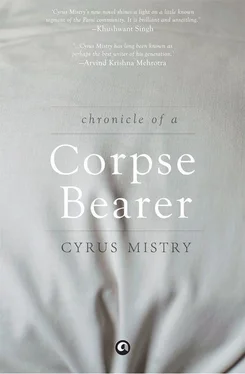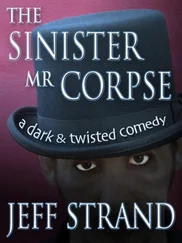
Whatever opinion my family may have had of me, it probably had little effect on me. For at the age of four or about then, I grew into quite a brat, still often unintelligible in my locution, but nevertheless, very voluble and self-confident. Often wide-eyed and dumbstruck by Vispy’s ability to carry out the most prodigious feats, I was cautioned never to attempt any of them until I was his age. Such as walking along the narrow parapet of the temple’s veranda, which was quite deserted in the evenings, or turning multiple somersaults on Papa’s large bed. I felt proud of Vispy, of all his achievements, especially those for which he was lauded at the school he went to for the better part of the day. These were sometimes mentioned or discussed over family dinner.
One of his skills, which I would often marvel at, was the ease with which, on a squally January evening, after school, he put a kite up in the sky. There was a narrow stairway that led up to the temple terrace, and I’d follow him there. Sometimes, there were dozens of kites already in the sky, controlled by other invisible strings — careening, swooping, wafting, bobbing, spinning out of control, gliding high on a gentle breeze, or soaring deep into a darkening sky. Once, but only once, after he had put his kite up very high in the sky, Vispy allowed me to hold the thread. It was the lightest moment of my life. I felt myself airborne, flying. And also, I felt a great and momentous responsibility, as though I had been temporarily put in charge of a planetary configuration or of one of the world’s rarest elements; as if the earth’s continued equilibrium was entwined in my fingers to maintain. But before I could savour the moment for any length of time, Vispy took the string away from me.
‘You’ll cut your hand, don’t fool around! There’s ground glass coating this twine. .’
I didn’t understand what he meant by that. But my interrupted tryst with the sky may have inspired me to fly Hormaz.
Since I knew I could never put Vispy’s kite up in the sky by my own efforts, and would have left it hopelessly mangled had I tried, it seemed far easier to try and fly a bird. The very next afternoon, soon after he had left for school, I took down the reel of thread from where it lay atop Vispy’s cupboard, and approached Hormaz quietly. Since there was no question of my being able to take the bird up to the terrace, I thought I’d fly him right there in our front room. Mama and Papa were napping in the next one. With the trusting and slightly impatient indifference of an eighty-year-old, the parrot refused, at first, to react: perhaps, he thought, this little brat — how can he hurt me?
But when I had quickly wrapped the string thrice around his neck, he began to squawk in alarm. I hadn’t bargained for all this noise. I had just wanted to fly Hormaz around the room at the end of my string. Instead, he began to flutter and tremble and shriek, terrified. Flapping his wings madly, he would rise just a few inches, then descend again trembling, screaming his head off. I knew all this noise would wake up my parents. Before that happened, and they put an end to my experiment, I wanted Hormaz to fly up in the air just a bit and circumnavigate the room, maybe only a couple of times at the end of my string. So I tugged at the string, but he didn’t move. Then I tugged harder.
And this time, he did take off; Hormaz flew up with a great deal of force. And suddenly, there was blood everywhere. Not just on the feathers of the grey parrot lying on the floor, but everywhere, on my fingers and hands as well. And suddenly, I was shrieking louder than the parrot had been a minute ago.
Several cries and exclamations followed soon after — first concern, then horror — Mother rushed into the room and began shrieking, too. That was my first experience of death, though I was too young to know it by its name.
For many years after this, my parents were kind enough not to remind me of my stupidity, or blame me for this tragic mishap. It was tacitly accepted by my parents that I had been just too young, too foolish to fully understand what I had done. But even to my as yet underdeveloped ability to make inferences, the inescapable relation between the hard tug at the sharp kite-flying string, my own bloody fingers and the fallen parrot on the floor locked together with a terrifying logic. I couldn’t have put words to what had happened, but my guilt was enormous. Within myself, I was grieving silently for Hormaz and the whole episode only made me more taciturn than before.
The notion that I was the stupid one in the family caught on .
To be sure, I did many foolish things when I was small — the unfortunate near-decapitation of Hormaz being only the first. That all my family believed I was endowed with an inferior intelligence was evident in the way they spoke to me, and of me. There may have been some degree of genuine concern underlying the tacit complicity they shared over my alleged mental deficiencies; but it was annoying to me that my mother, father and brother — all seemed bonded in a conspiracy of nervous apprehension, as though continually watching for further signs of my dull-wittedness. Rather than reassure them that their fears were misguided, I found it more gratifying to confound them with further evidences of my idiocy.
No, even that’s not completely true. My cussed disposition may have ensured that I felt perversely contrary, antipathetic to their bewildered suspicions. But I never deliberately postured, or projected myself as someone, or something I wasn’t. If my folks saw me as doltish, it was because their minds were already predisposed on that score.
And, perhaps, the biggest reason for this prejudice had its root somewhere in my own undeniable light-headedness: every now and then, for no apparent rhyme or reason, I would burst into bouts of irrepressible giggling. No matter how ostentatious or forbidding an occasion might be, no matter how dignified, exalted or solemn — if I sensed that some kind of formality was being called for, in itself this condition was sufficient to set me giggling.
Until the age of five or six, I suppose this is generally tolerated and may even seem cute. But the older I grew the more absurd any requirement of pomposity or piety seemed; immediately and automatically — irrespective of context — it evoked in me a burst of unstoppable and hearty rejoicing. Naturally, eyebrows were raised at this kind of compulsive, brazenly disrespectful, side-splitting risibility. To this day, I have to make a special effort to exercise control over this aspect of my reflexes. The mere knowledge that a part of me is telling me to restrain myself is enough to unfasten the lid on my irreverence.
I had grown up in the rear of a fire temple which was revered and visited by scores of people daily. At all times of day and night, every nook and corner of the temple was sanitized by the cleansing perfume of sandal and incense. In our tiny quarters at the back as well, the air was redolent with the smell of piousness; and our lives tangled in an elaborate network of rules and proscriptions that had been instilled in us from a very young age. Everything was sanctified and respect-worthy. No room here for fatuity, or impiety.
There were procedures for everything — for eating a meal, for pissing, for taking a crap, for washing one’s arse, for how to wash one’s hands after doing that, for taking a bath; and above all, for when and how frequently one must recite the prayers which would restore some measure of wholesomeness to one’s sullied, contaminated self.
Personal hygiene and purity — the rules of which, according to my father, were clearly laid down in our ancient texts — were essential prerequisites to spiritual progress. Naturally, I could not help being amused by the overblown logic or lack of it in some of these injunctions, which may have had good reason for being enjoined upon primitive pastoral tribes some three thousand or five thousand years ago, but didn’t need to be glorified into obsessive, all-embracing moral codes. Their obvious rationale at the time would have been sanitary — it seemed evident even to me — not mystical, or ‘scientific’, as my father would have us believe.
Читать дальше













